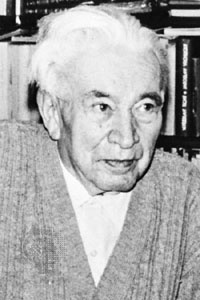Seifert, Jaroslav
Czech author
born Sept. 23, 1901, Prague, Bohemia, Austria-Hungary 【now in Czech Republic】
died Jan. 10, 1986, Prague, Czech.
 poet and journalist who in 1984 became the first Czech to win the Nobel Prize for Literature.
poet and journalist who in 1984 became the first Czech to win the Nobel Prize for Literature.Seifert made a living as a journalist until 1950, but his first book of poetry, Město v slzách (“Town in Tears”), was published in 1920. His early proletarian poetry reflects his youthful expectations for the future of communism in the Soviet Union. As he matured, however, Seifert became less enchanted with that system of government, and his poetic themes began to evolve. In Na vlnách T.S.F. (1925; “On the Waves of T.S.F.”) and Slavík zpívá špatně (1926; “The Nightingale Sings Badly”), more lyrical elements of so-called pure poetry were evident. In 1929 Seifert broke with the Communist Party.
The history and other aspects of Czechoslovakia were the most common subjects of his poetry. In Zhasněte světla (1938; “Put Out the Lights”) he wrote about the Munich agreement by which part of Czechoslovakia was annexed to Germany. Prague was the subject of Světlem oděná (1940; “Robed in Light”), and the Prague uprising of 1945 provided the focus of Přílba hlíny (1945; “A Helmetful of Earth”). In addition to writing about 30 volumes of poetry, Seifert contributed to several journals and wrote children's literature. In 1966 he was named Poet of the Nation, and he was one of several writers, later silenced, who condemned the Soviet invasion of Czechoslovakia in 1968. In January 1977 he was among the first to sign a petition, Charter 77, drawn up to protest the rule of Czech leader Gustav Husak (Husak, Gustav). His memoirs were published in 1981.
- Stone, Toni
- stone-tool industry
- stoneware
- stonewort
- Stoney, George Johnstone
- Stonington
- Stonington Island
- Stony Brook
- Stonyhurst College
- stony iron meteorite
- stony meteorite
- Stony Point
- stool
- stop
- Stopes, Marie
- stoping
- Stoppard, Tom
- Storace, Stephen
- storage
- storax
- Storey, David
- Storia della Scienza, Museo di
- stork
- storksbill
- storm